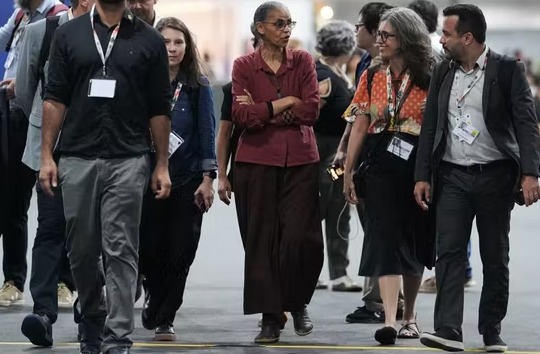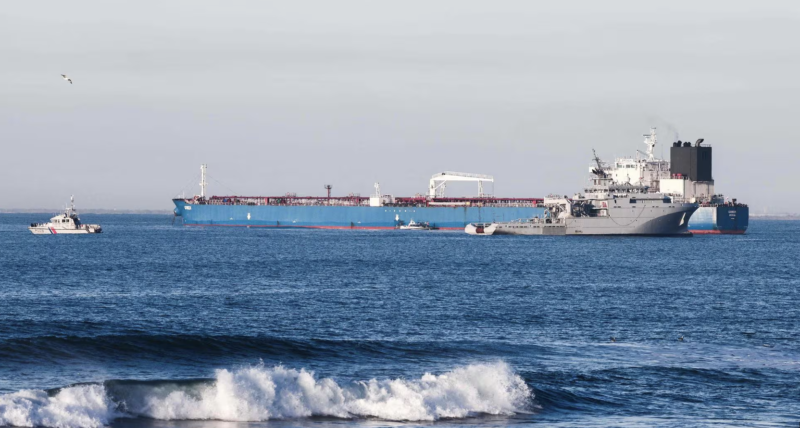Negotiations at the 30th UN Climate Change Conference (COP), bringing together nearly 200 countries in Belém since last week, entered their final day on Friday, November 21, with no consensus in sight between blocs that remain deeply divided over the issue of fossil fuels. The situation is so tense that the European Union is openly raising the possibility of a COP30 “without an agreement,” which would be a humiliating failure for Brazil and for the first UN climate conference ever held in the Amazon.
The Brazilian presidency of COP30 has put forward a draft decision containing a major omission: it does not include the word “fossil,” nor does it mention the “roadmap” demanded by at least 80 countries across Europe, Latin America, and small island states.
European countries and their allies—including Colombia, which is leading the fight against oil “proliferation”—reacted immediately. “What is currently on the table is unacceptable,” said EU Climate Commissioner Wopke Hoekstra. “It is unfortunate to say, but we are really facing a no-deal scenario.” German Environment Minister Carsten Schneider added, “The text cannot remain as it is.”
“We all know who is blocking the most. The oil-producing countries, of course—Russia, India, Saudi Arabia—joined by many emerging economies,” declared French Minister for Ecological Transition Monique Barbut, speaking to AFP about the absence of any reference to fossil fuels in the draft final agreement. For Colombian Environment Minister Irene Vélez Torres, COP30 “cannot end without a roadmap to phase out fossil fuels.”
The proposal was immediately rejected by NGOs. “It’s like a blank page—there is so little to bridge the ambition gap needed to stay at 1.5°C, or to push countries to accelerate action,” reacted Greenpeace’s Tracy Carty. WWF called the text “extremely disappointing.”
Negotiations continue
“Those who doubt that cooperation is the best way forward for climate action will be absolutely delighted to see that we cannot agree,” argued COP30 President André Corrêa do Lago. After a night of consultations, he said the discussions would continue through what promises to be a very long day. His challenge is immense: securing agreement among 194 countries and the European Union, all parties to the Paris Agreement, with adoption by consensus as required at COPs.
The idea of a “roadmap” to accelerate the phase-out of oil, coal, and gas—major drivers of global warming—emerged from growing frustration over the lack of progress since the commitment to “transition away from fossil fuels” adopted at COP28 two years ago.
In a turbulent geopolitical year, with many Western countries politically stepping back from climate priorities, few expected the issue to return to center stage. But Brazilian President Lula revived it at the opening of the Belém summit, and raised it again on Wednesday during his visit to COP30, energizing the anti-oil coalition. No COP has concluded on schedule since 2003, and many veteran negotiators expect extensions in Belém.
Site evacuation
Proceedings were delayed on Thursday by a fire that forced the evacuation of the venue at midday, costing delegates several valuable hours. It is the third incident to disrupt the UN conference, which began last week in this symbolic Amazonian city. Earlier, an incursion by Indigenous protesters and a blocked entrance had already complicated the summit organized by Brazil with the UN.
The fire broke out in the heart of the temporary COP site at Parque da Cidade, made up of large air-conditioned tents. Within minutes, tall flames consumed part of the roof in the national pavilions area, according to AFP journalists on site.
The East African Community pavilion was among those destroyed. Nineteen people were treated for smoke inhalation, and two for anxiety attacks, according to the Ministry of Health.




